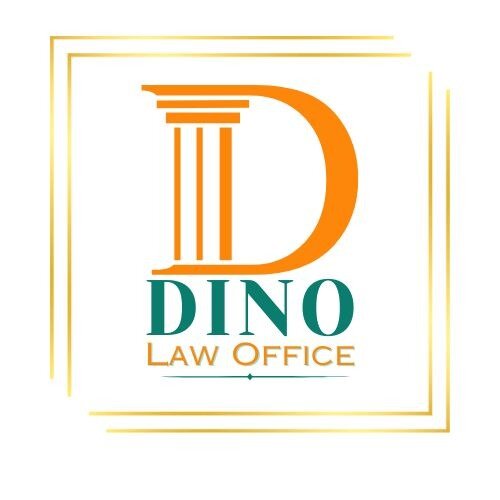Best E-commerce & Internet Law Lawyers in Makati City
Share your needs with us, get contacted by law firms.
Free. Takes 2 min.
List of the best lawyers in Makati City, Philippines
About E-commerce & Internet Law in Makati City, Philippines
E-commerce & Internet Law encompasses the rules, regulations, and legal principles governing online transactions and internet-based commercial activities. In Makati City, a bustling financial hub of the Philippines, these laws play a critical role given the city's vibrant online business environment. The legal landscape for e-commerce and internet activities involves a combination of local statutes and regulations that address issues such as consumer protection, data privacy, electronic contracts, intellectual property rights, and more.
Why You May Need a Lawyer
Navigating the complexities of E-commerce & Internet Law can be challenging, and there are several situations where seeking legal advice is beneficial. You may need a lawyer if you are:
- Launching an online business and need to understand compliance requirements.
- Dealing with data privacy concerns and need to ensure you adhere to the Data Privacy Act of 2012.
- Facing issues related to intellectual property infringement online.
- Encountering disputes from online transactions or contracts.
- Handling cybersecurity breaches and need legal guidance on disclosure and redress options.
- Developing terms and conditions, privacy policies, or return policies for an e-commerce setup.
Local Laws Overview
Makati City operates under the broader legal framework of the Philippines, with specific local ordinances that may apply. Here are some key aspects:
- Data Privacy Act of 2012: Addresses data protection and privacy for businesses handling personal data electronically.
- Electronic Commerce Act of 2000 (Republic Act No. 8792): Governs electronic transactions, digital signatures, and online contract agreements.
- Consumer Act of the Philippines: Ensures consumer rights in online transactions are protected, covering unfair and deceptive business practices.
- Intellectual Property Code: Protects online intellectual property rights including copyrights, trademarks, and patents related to digital content.
- Local Business Permits: E-commerce businesses in Makati may need specific permits and compliance with local legislations.
- Cybercrime Prevention Act of 2012: Addresses crimes committed via the internet, such as identity theft and cyber scams.
Frequently Asked Questions
1. What constitutes an electronic contract?
An electronic contract is a legally binding agreement that is created, signed, and stored in a digital format. In the Philippines, these contracts are largely governed by the Electronic Commerce Act of 2000.
2. How can online businesses protect consumer data in compliance with local laws?
Businesses should implement robust data protection practices, including encryption, secure storage, and obtain explicit consent for using personal data, as mandated by the Data Privacy Act of 2012.
3. What steps can I take if my intellectual property rights are violated online?
Begin by documenting the infringement, then consult a lawyer specializing in intellectual property to explore actions like cease and desist letters or filing a formal complaint with the Intellectual Property Office.
4. Are there specific tax implications for e-commerce businesses in Makati?
Yes, e-commerce entities must comply with national and local taxation regulations, including registering the business with the Bureau of Internal Revenue (BIR) and possibly paying local business taxes in Makati.
5. How can a lawyer assist in drafting e-commerce website policies?
A lawyer can ensure that your terms of service, privacy policy, and other legal documents are comprehensive, compliant with local laws, and protect your business interests.
6. What legal remedies are available for online defamation?
You may file a libel complaint under the Cybercrime Prevention Act of 2012 with the assistance of a legal professional experienced in cyber laws.
7. Can foreign entities conduct e-commerce in Makati?
Yes, but they must adhere to specific foreign ownership laws, register with pertinent governmental bodies, and comply with local business and taxation laws.
8. How can businesses address cybersecurity incidents legally?
Engage legal counsel to evaluate the situation, notify affected users if required, and comply with disclosure obligations under the Cybercrime Prevention Act and other applicable laws.
9. Is online dispute resolution available in the Philippines for e-commerce conflicts?
Yes, online dispute resolution is an emerging option, providing a faster and potentially less costly alternative to traditional litigation for online transaction disputes.
10. What permits are necessary for setting up an e-commerce venture?
Aside from national requirements, local permits in Makati City, such as a Mayor's Permit and barangay clearance, are necessary depending on the nature and structure of the business.
Additional Resources
Here are some helpful resources and organizations for e-commerce legal advice:
- National Privacy Commission (NPC): Provides guidance on data privacy laws and best practices.
- Department of Trade and Industry (DTI): Offers resources on consumer rights and business regulations.
- Intellectual Property Office of the Philippines (IPOPHL): Handles intellectual property concerns and registrations.
- Philippine E-Commerce Alliance: A group supporting the development of e-commerce businesses in the Philippines.
Next Steps
To proceed with obtaining legal assistance in E-commerce & Internet Law, consider the following steps:
- Research and List: Identify your specific legal needs concerning e-commerce and create a list of potential legal concerns.
- Consult a Lawyer: Schedule a consultation with a lawyer who specializes in e-commerce and internet law to discuss your issues.
- Prepare Documentation: Gather relevant documents including business permits, contracts, and electronic correspondence that may be necessary for legal evaluation.
- Understand Costs: Inquire about legal fees and services to budget for any potential legal expenses.
- Engagement and Action: Choose a lawyer you trust, engage their services, and actively participate in the legal process to address your concerns.
Lawzana helps you find the best lawyers and law firms in Makati City through a curated and pre-screened list of qualified legal professionals. Our platform offers rankings and detailed profiles of attorneys and law firms, allowing you to compare based on practice areas, including E-commerce & Internet Law, experience, and client feedback.
Each profile includes a description of the firm's areas of practice, client reviews, team members and partners, year of establishment, spoken languages, office locations, contact information, social media presence, and any published articles or resources. Most firms on our platform speak English and are experienced in both local and international legal matters.
Get a quote from top-rated law firms in Makati City, Philippines — quickly, securely, and without unnecessary hassle.
Disclaimer:
The information provided on this page is for general informational purposes only and does not constitute legal advice. While we strive to ensure the accuracy and relevance of the content, legal information may change over time, and interpretations of the law can vary. You should always consult with a qualified legal professional for advice specific to your situation.
We disclaim all liability for actions taken or not taken based on the content of this page. If you believe any information is incorrect or outdated, please contact us, and we will review and update it where appropriate.












